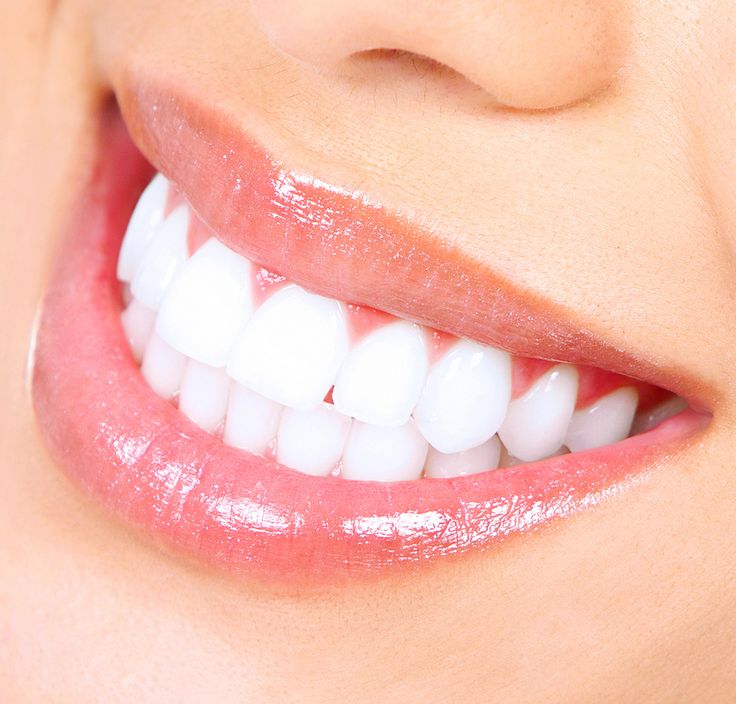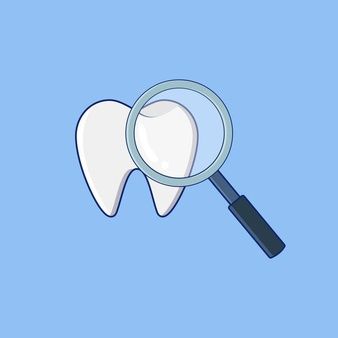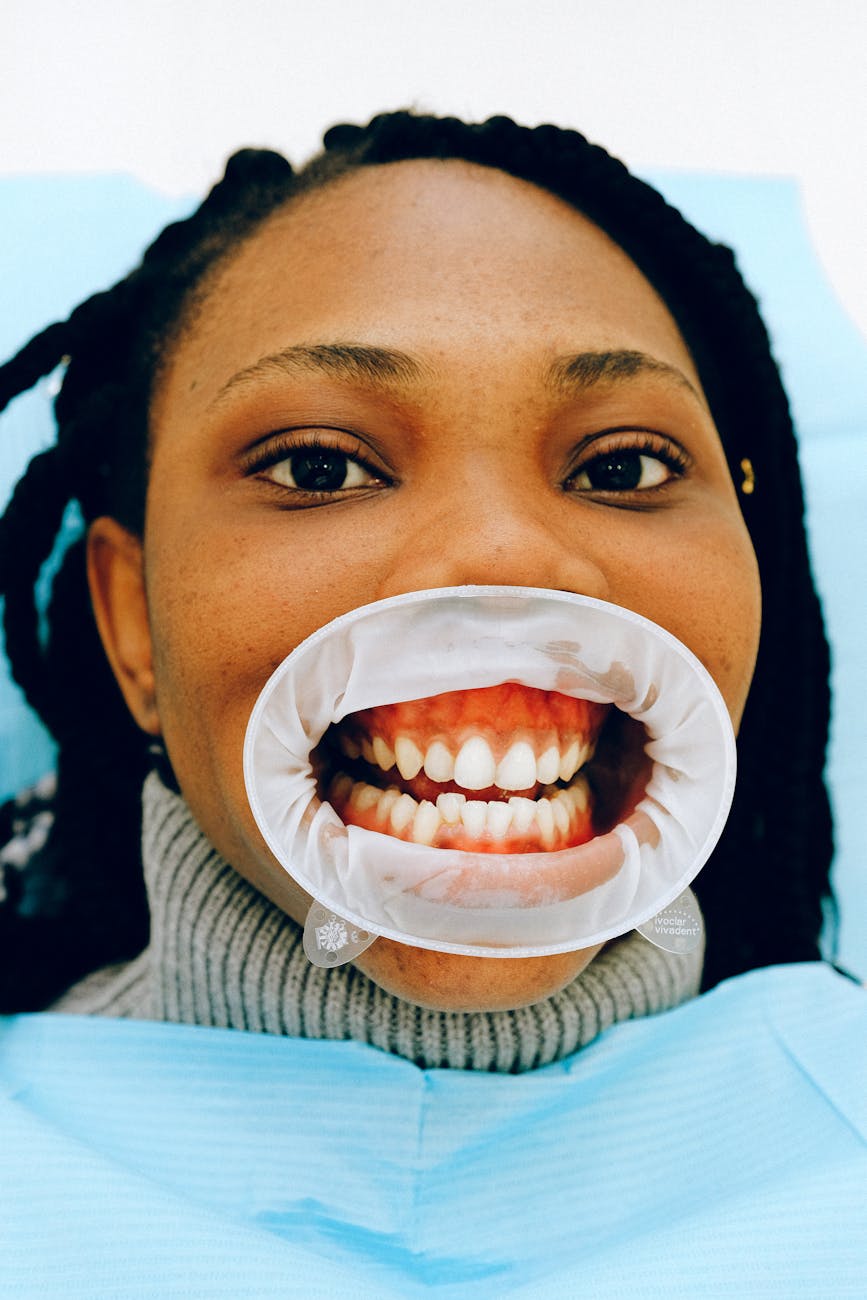

Your oral (and dental) health is a very important part of your overall health and general well-being. You might be wondering how that is. Well, the reason is pretty simple.
Poor oral hygiene leads to oral diseases like gum (periodontal) disease, dental cavities, and so on. Many people think that oral conditions are very separate from other chronic health conditions and diseases. The truth is that oral diseases are interrelated with other chronic conditions such as cancer, heart disease, and diabetes.
Oral health touches every aspect of our lives but is often taken for granted. Your mouth is a window into the health of your body. It can reveal signs of nutritional deficiencies or general infection. Systemic diseases such as diabetes mellitus may first become apparent because of mouth lesions and other oral diseases.
Therefore, the earlier you commit to maintaining proper oral hygiene (like brushing regularly, flossing, hydrating, and limiting sugary foods) the more protection you have against long-term health issues and avoid costly dental treatments.
This article elucidates various oral health diseases and general ways to prevent and treat them. So, if you want to learn more about oral diseases and how they affect you, then you’ve come to the right place.
The World Health Organisation defines oral health as the state of being free from mouth and facial pain, oral diseases, and disorders that limit an individual’s capacity to bite, chew, smile, speak, and psycho-social well-being.
Despite great achievements in the oral health of populations globally, the burden of oral diseases still remains a problem in many communities all over the World, particularly among underprivileged groups in developed and underdeveloped Countries (WHO, 2020).
The Global Burden of Disease Study 2017 estimated that oral diseases affect 3.5 billion people worldwide, with untreated caries being among the most prevalent non-communicable diseases (WHO 2020). Since most oral diseases are non-communicable, emphasis must be placed on primordial and primary prevention strategies to reduce the burden of oral diseases globally.

So many things can go completely wrong with our oral space, especially when you lack good oral hygiene. Our mouths and teeth are used for several things and so the least we can do is to maintain it. In most cases, proper oral hygiene is the best preventive measure and treatment for dental and oral diseases or conditions.
Nevertheless, the most frequent oral diseases include;
Dental cavities, caries, or tooth decay refer to areas of the tooth that are permanently damaged and (in some cases) have holes in them. Cavities occur when the tooth enamel gets eaten away by acids.
This acid is formed when plaque (caused by bacteria and food) collects on the teeth, typically around the gum and in the crevices on the teeth’s chewing surfaces. Then, the bacteria in the plaque combine with sugar (from carbohydrates) and produce an acid coat that can (and will) destroy the enamel.
This acid eats away the enamel, or root surface, and then the underlying dentin (or connective tissue), causing it to break down. If not treated (early on) it can lead to permanent damage over time.
Dental cavities are one of the most common chronic diseases, despite being very preventable. On rare occasions, the decay can cause severe infection and spread to other parts of the body.
Treatment: The decay may easily be reversed if caught on quickly with fluoride treatments. Nonetheless, the typical treatments for dental cavities are fillings. However, if the decay is too severe, the dentist will either remove the tooth entirely or cover it with a crown.
Gum (Periodontal) disease is an infection that inflames the surrounding gum, tissues, and bones that support the teeth and hold them in place. Certain things like tobacco, genetics, stress, and poor oral hygiene are risk factors for gum diseases.
Periodontal disease starts with swollen, red, and bleeding gums (gingivitis). If left untreated, the infection will progress and spread to the jaw and bones that surround the teeth, making chewing a painful affair.
Additionally, if periodontal disease isn’t treated in its early form, the bone supporting the teeth can deteriorate and the gum will get infected. If there is no bone to support the teeth, the teeth will become loose and may need to be removed.
Chronic conditions of periodontal disease can increase the risk of a weakened immune system and diabetes. Additionally, gum disease can trigger an inflammatory response all over the body.
Treatment: Gum disease can easily be treated if diagnosed early. However, gum disease cannot be cured. Once your teeth lose the structural support around them, you can get all of it back. Nevertheless, in cases where it is irreversible, periodontal treatment will reduce the infection and rebuild the tissue and bone to some extent.
A dental professional might schedule one or two of the several treatments for periodontal disease below;
Oral cancer affects the floor of the mouth, tongue, hard and soft palate, gums, tonsils, lips, cheeks, and oropharynx (the part of the throat behind the mouth).
There are no distinct or clear early warning signs of oral cancer. However, a dentist will usually recognize oral cancer immediately. Therefore, the surest way to detect oral cancer is by going for regular dental checkups. A dentist will test you for oral cancer if you are experiencing any of the following symptoms;
The risk factors of oral cancer include;
Treatment: Treatment for oral cancer varies depending on the cancer stage. However, treatments include;
The oral cavity collects all sorts of bacteria, viruses, and fungi. Some of them belong there, making up the normal flora of the mouth. They are generally harmless in small quantities.
However, frequent consumption of sugar-rich diets creates conditions in which acid-producing bacteria can flourish. This acid dissolves tooth enamel and causes dental cavities.
Also, bacteria near the gumline thrive in a sticky matrix called plaque. Plaque accumulates, hardens, and migrates down the tooth’s length if it isn’t removed regularly by brushing and flossing. This can inflame the gums and cause gingivitis.

If you have poor oral health and hygiene, there is a high chance that you will experience the following symptoms:
Never wait until you have symptoms (and they progress) before visiting a Dentist. Scheduling appointments with your Dentist (at least) twice a year gives room for prompt diagnosis of slight alteration in the teeth and other oral tissues before the initiation of symptoms.
Most dental and oral diseases can be diagnosed during a dental examination, in which case, your Dentist inspects your teeth and other oral tissues with a dental mirror and probe. Dental radiographs can be requested to make a definitive diagnosis.
Complications of oral diseases can be life-threatening. Twice yearly scaling and polishing are mandated for all, which makes up part of your routine dental check-up. Your Dentist will further recommend appropriate treatment measures for established oral diseases.
Many oral conditions can be prevented and treated by being intentional with your oral health. Therefore, keeping your mouth healthy has to be a daily commitment. This includes brushing twice a day, flossing, and using a mouthwash as your daily dental routine.
A dentist or dental hygienist cleans the teeth to remove the tartar and plaque buildup on the teeth that your brushing and flossing couldn’t. This procedure is also called root planning or scaling.
After removing all the tartar and plaque, the dentist proceeds to brush your teeth with a high-powered toothbrush, floss your teeth, and rinse out.
Dental fillings are artificial materials that are used to repair a hole, gap, cavity, or crack in the enamel of a damaged tooth. Fillings are usually combinations of different materials like glass, plastics, or metals. In most cases, the tooth is filled with amalgam or composite.
Dental sealants are thin, protective coatings that are painted on the chewing surfaces of the molars to prevent tooth decay or cavities for years. This coating protects the molar by blocking out food, germs, and bacteria.
A dental crown is a tooth-shaped cap or covering to fill the gap in an existing tooth. It is made from metal, gold alloy, or porcelain.
A dental crown restores a tooth that has broken (maybe due to injury), decayed, or weak tooth. There are two types of dental crowns: a regular crown that covers a natural tooth and an implant crown that covers an implant. Both crowns improve the way the tooth looks and strengthen it.
Fluoride treatments are usually applied by dentists as a follow-up treatment for dental cleaning. Fluoride is a natural mineral that prevents cavities and strengthens the tooth enamel against bacteria and acid.
Fluoride treatments are given to people with weak enamel, dry mouth, and a higher risk of dental caries, tooth decay, or erosion.
A root canal or endodontic therapy is a procedure that treats or removes infection in the tooth pulp. This procedure is administered when the decay in a tooth goes all the way to the innermost layer of the nerve. The nerve is removed and replaced with a biocompatible material, usually a combination of a rubber-like material called gutta-percha and adhesive cement.
Antibiotics are prescribed if you have a tooth abscess or gum infection that has spread to other teeth or jaw. It gets rid of the infection and may be in the form of a capsule, mouth rinse, or oral tablet.
The best ways to practice good oral hygiene include:
• Brushing your teeth with fluoride-containing toothpaste at least twice a day;
• Flossing after meals (DON’T USE TOOTHPICKS!);
• Scheduling regular appointments with your Dentist, at least twice a year;
• Avoiding tobacco products;
• Limiting the intake of refined carbohydrates and carbonated drinks;
• Asking questions from an expert Dentist when in doubt.

Oral health is beyond just your teeth, it affects your entire body. Dental and oral conditions can dampen your self-esteem, chewing, speech, and smile. Most of the time, many oral and dental conditions develop without showing any symptoms.
Therefore, paying a regular visit to the dentist will help you catch an oral disease and nip it in the bud. If you have a very busy schedule or simply can’t make the commute to see a dentist, you can book a session with doctors on KompleteCare for professional diagnosis and treatment.
Additionally, maintain good and proper oral hygiene. It is the best and surest preventive measure against oral diseases.
The outcome of your oral health depends on the effort you put into maintaining it. You won’t be able to prevent every plaque buildup or cavity, but you can take charge of your oral health and remain diligent in your oral care to reduce the risk of severe oral diseases.
By choosing this path, you’re investing in a healthier, happier you. Therefore, embrace your new found knowledge, be proactive, and empower your smile!
Remember, a healthy mouth is the foundation for a healthy you and a confident smile.

There are basically three common dental and oral diseases. This is because the three conditions (dental cavities, gum disease, and oral cancer) result in other oral conditions like edentulism (total tooth loss), oro-dental trauma, and teeth, mouth, and oral cavity injury.
However, there are other oral conditions like;
2. What does your oral health say about you?
Your oral health says a lot about you and your overall health. Your mouth is a window into the health of your body. It can reveal signs of nutritional deficiencies, tooth decay, gum disease, or general infection.
3. What causes poor oral health?
Poor oral health is a consequence of negligent dental and oral care. Aside from barriers of cost, treatment services, and health illiteracy, poor oral habits like smoking and drinking excessive alcohol can deteriorate your oral health.
4. How can I keep my teeth healthy naturally?
Keeping your teeth healthy naturally is very doable and cost-effective. Several natural practices that can keep teeth and gums healthy include;
5. What is the most serious mouth disease?
Periodontal gum disease is the most serious mouth disease. This is because it eats away the gum around the tooth and bone, makes it loose, and (if it has spread too far) causes the tooth to be removed.
HealthLine. (2019). Everything You Need to Know About Dental and Oral Health
World Health Organization (WHO). Oral Health
Centers for Disease Control and Prevention. Oral Health Conditions
Colgate. (2023). Five Common Oral Diseases And How They’re Treated
Cleveland Clinic. Periodontal Disease (Gum Disease)
Mayo Clinic. (2023). Periodontitis -Symptoms and causes
Cancer Council. Mouth cancer | Causes, Symptoms & Treatments
healthcareFebruary 27, 2025
healthcareAugust 20, 2025








